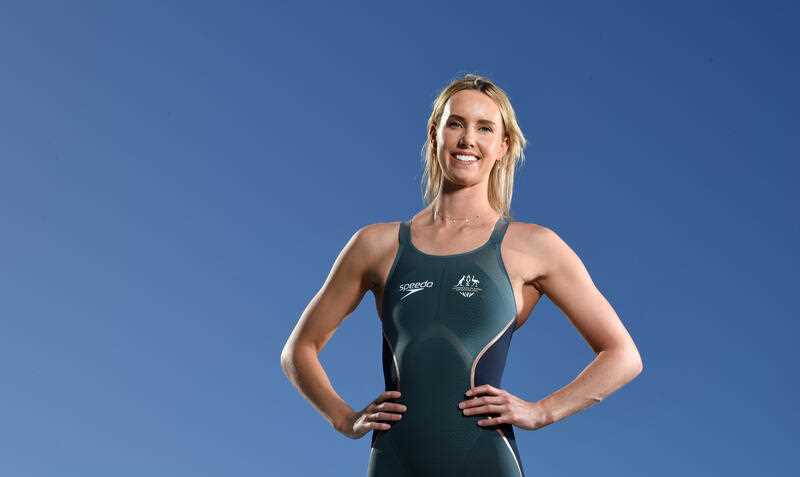Australians preparing to storm England’s sporting castle at the Commonwealth Games in Birmingham are being warned.
The Poms will be formidable. In a fervour.
And fighting to avoid another Aussie beating on the Commonwealth Games medal table.
“It’s tough on someone else’s patch,” Australian Commonwealth Games Association chief executive Craig Phillips told AAP.
“But the reality for us is, we are the No.1 sporting nation in the Commonwealth so there is always that expectation.”
Australia will send 435 athletes to the July 28-August 8 Games in Birmingham in England’s west midlands.
The Saxon village which grew into a town in the 12th Century is now England’s second-largest city and will host the 20th edition of the Commonwealth Games.
Australia have topped the medal table at 11 Games, England seven, Canada one.
Since 1994, Australia have been unseated from the head of the medal table just once – by the English at the last Games on British soil, Glasgow 2014.
“We certainly didn’t get there in Glasgow and we know the English will be tough on home soil,” Phillips said.
“So it won’t be an easy thing for us to do in Birmingham, it will be difficult.
“But given our status in the Commonwealth, it’s hard for us to hide behind. We declare it, that No.1 mantle.
“England’s team will be a little larger than ours … there are certainly going to be some challenges ahead.
“But we have some well credentialed athletes and a strong team.
“One of the byproducts of the delayed Tokyo Olympics is we have tended to be able to carry some of that form forward … we are in good shape across the board.”
Australians harvested 80 golds at the Gold Coast Games four years ago.
And over the past five Games, Aussies have won an average of 74 gold medals.
Of Birmingham’s 19 sports, Australia won gold in 15 of them four years ago.
Plus, Birmingham has added women’s Twenty20 cricket – suits Australia, a five-time world champ in the format.
Where will the other medals come from?
Swimming, largely.
At the Gold Coast pool, Australia set a fresh high-water mark: 28 gold, including five to Mitch Larkin and four to Emma McKeon, among 73 swimming medals.
McKeon also won four Olympic golds in Tokyo last year and could scale heights never accomplished by an Australian at a Commonwealth Games.
In Birmingham, McKeon could better the Australian record for most golds at a Games: six, by Susie O’Neill in 1998 and Ian Thorpe in 2002.
The swim team, with the likes of Olympic champs Ariarne Titmus, Kaylee McKeown and Zac Stubblety-Cook, remain hungry for success.
But there’s a spanner in the works in cycling.
Aussie cyclists won 14 Commonwealth golds four years ago but track cycling is rebuilding after a Tokyo Olympics disaster which returned just one bronze medal.
But road cycling squads for Birmingham look strong and could well repeat their sweep of the four gold medals on the Gold Coast, with sprint ace Caleb Ewan, time trial star Rohan Dennis and the in-form Grace Brown headliners.
On the Gold Coast, Australia’s track and field team collected 13 gold medals.
This time, expectations are somewhat tempered for an 85-strong athletics team amid uncertainty about just who from rest of the Commonwealth will turn up – the track and field world titles in Oregon finish four days before the opening ceremony.
Peter Bol will lead Australia’s charge on the track, the field should produce medallists such as Matt Denny in the discus, pole vaulter Kurtis Marschall and high jumper Brandon Starc.
They’ll join Meg Lanning’s team of cricketers, Australia’s men’s and women’s basketballers, lawn bowlers, hockey and beach volleyball players as being gold medal favourites.
And gymnastic, shooting, squash, table tennis and triathlon loom as genuine shots to help Australia retain its reputation as the Commonwealth’s sporting power.
The Australian team will be split into five in Birmingham.
Birmingham organisers had planned a single athletes village but its construction “had very little scope to withstand the impact of COVID-19” and was delayed. It’s still to be built, just not in time for the Games.
The Australian athletes will stay at two university campuses, two hotels and track cyclists will be in London where they’ll compete at the capital’s velodrome used at the 2012 Olympics.
The split accommodation also mitigates risks of a coronavirus outbreak within the team.
“It wasn’t the reason it happened … but it actually does help us,” Phillips said.
Against the COVID-19 backdrop, Phillips and his executive team have mandated that Australia’s athletes will depart within two days of their competition finishing.
“We were just unsure about what the COVID environment would be like at Games time,” he said.
“It was a difficult decision because we do encourage team camaraderie so we are going to have to find other ways of doing that.
“Regrettably we are sending people home early which is not something that we wanted to do, but it’s prudent.”
The Australians will foster a team spirit ahead of chef de mission Petria Thomas picking a flag bearer for the opening ceremony at Birmingham’s 30,000-capacity Alexander Stadium.
Rower Henry ‘Bobby’ Pearce was Australia’s flag bearer at the first, the then British Empire Games in 1930 in Hamilton, Canada.
Unemployed during the Great Depression, friends and family funded Pearce’s trip.
He won single sculls gold, whisky magnate Lord Dewar offered him a job as a salesman, and he stayed in Canada.
By Steve Larkin in Adelaide
Get local, national and world news, plus sport, entertainment, lifestyle, competitions and more delivered straight to your inbox with the Canberra Daily Daily Newsletter. Sign up here.



